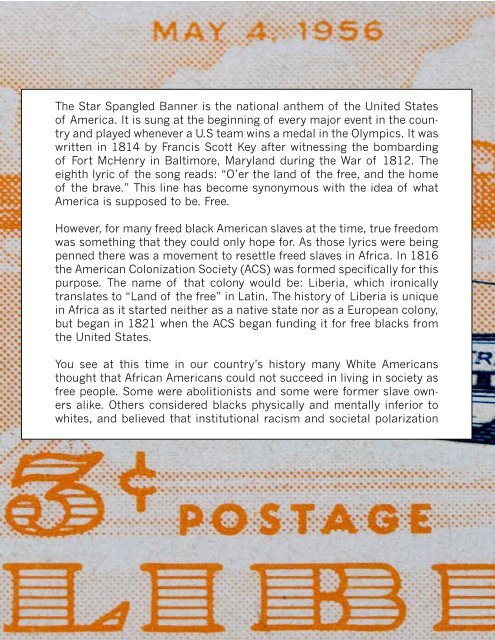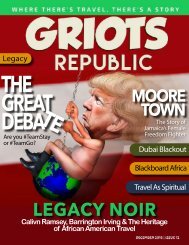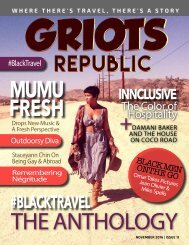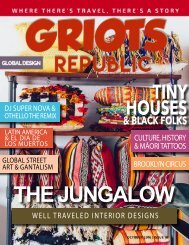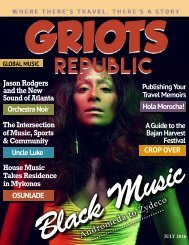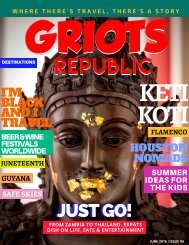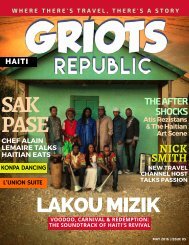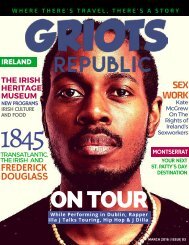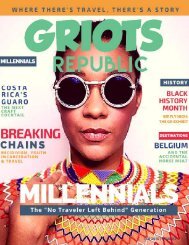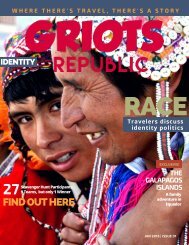GRIOTS REPUBLIC - AN URBAN BLACK TRAVEL MAG - AUGUST 2016
O Canada! Our August issue is a destination issue on Canada. Check out profiles from The Passport Party Project, Olympian Aaron Kingsley Brown, Oneika The Traveller and My Wander Year. This issue also includes a Black Lives Matter Special Section.
O Canada! Our August issue is a destination issue on Canada. Check out profiles from The Passport Party Project, Olympian Aaron Kingsley Brown, Oneika The Traveller and My Wander Year.
This issue also includes a Black Lives Matter Special Section.
You also want an ePaper? Increase the reach of your titles
YUMPU automatically turns print PDFs into web optimized ePapers that Google loves.
The Star Spangled Banner is the national anthem of the United States<br />
of America. It is sung at the beginning of every major event in the country<br />
and played whenever a U.S team wins a medal in the Olympics. It was<br />
written in 1814 by Francis Scott Key after witnessing the bombarding<br />
of Fort McHenry in Baltimore, Maryland during the War of 1812. The<br />
eighth lyric of the song reads: “O’er the land of the free, and the home<br />
of the brave.” This line has become synonymous with the idea of what<br />
America is supposed to be. Free.<br />
However, for many freed black American slaves at the time, true freedom<br />
was something that they could only hope for. As those lyrics were being<br />
penned there was a movement to resettle freed slaves in Africa. In 1816<br />
the American Colonization Society (ACS) was formed specifically for this<br />
purpose. The name of that colony would be: Liberia, which ironically<br />
translates to “Land of the free” in Latin. The history of Liberia is unique<br />
in Africa as it started neither as a native state nor as a European colony,<br />
but began in 1821 when the ACS began funding it for free blacks from<br />
the United States.<br />
You see at this time in our country’s history many White Americans<br />
thought that African Americans could not succeed in living in society as<br />
free people. Some were abolitionists and some were former slave owners<br />
alike. Others considered blacks physically and mentally inferior to<br />
whites, and believed that institutional racism and societal polarization


